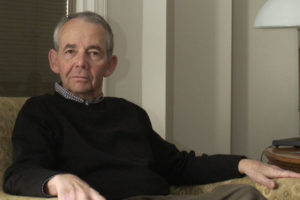Contemporary Poetry Review - Posted on 06 December 2012
It is nearly twenty-five years since Joseph Epstein published his now famous essay—or as Dana Gioia referred to it, his “mordant 1988 critique”—under the flashy title “Who Killed Poetry?” (Commentary, August 1988)
“A brilliant polemicist,” Gioia wrote, “Epstein intended his essay to be incendiary, and it did ignite an explosion of criticism.” That came from a similar-themed essay written by Gioia less than three years later (also with an interrogatory title), which went on to report: “No recent essay on American poetry has generated so much violently negative criticism from poets themselves [including “an extravagantly acrimonious symposium in the AWP Chronicle (the journal of the Associated Writing Programs)” when it was reprinted]. To date at least thirty writers have responded in print.” Gioia’s essay was similarly popular, and became, for him, a career-expanding impetus.
His question, “Can Poetry Matter?”, though slightly more philosophical in intent, was nevertheless equally designed to be provocative. It perhaps opens up a topic that can be debated endlessly; however, in regards to Epstein’s polemic, it is clearly time to lay the matter to rest. At face value, the question is an absurdity, and in fact Epstein’s essay itself implicitly acknowledges this, comparing poetry to a sickly patient which “so many poets, critics, editors, small-press publishers, [and] creative writing programs” have been struggling valiantly to keep alive: “if survival is genuinely at stake, it won’t do to ignore the symptoms.”
Still, the vehemence of response, even considerably after the fact, continued (and continues) to startle. In an interview (published in 2002 in a collection titled Talking with Poets), Philip Levine let loose:
The accusation holds its grain of truth, but only just. For though Epstein, in his writings, will make reference to persons “rather wealthier than oneself”, it is always clear that, while disliking travel, he has traveled amply enough, or has been able to afford the expensive dentistry and medical procedures that others must do without. His father, a manufacturer, importer and salesman of trinkets (“You should see the crap I’m selling”), ran a business that “never had more than seven or eight employees, but… was fairly lucrative.” Yet Epstein, a self-confessed snob, remembers “my own genuinely impressive ignorance as a kid from an unbookish home.” To the extent his essay represents elitism, it is not of the in-bred sort, but self-cultivated.
Full article at CPR
“A brilliant polemicist,” Gioia wrote, “Epstein intended his essay to be incendiary, and it did ignite an explosion of criticism.” That came from a similar-themed essay written by Gioia less than three years later (also with an interrogatory title), which went on to report: “No recent essay on American poetry has generated so much violently negative criticism from poets themselves [including “an extravagantly acrimonious symposium in the AWP Chronicle (the journal of the Associated Writing Programs)” when it was reprinted]. To date at least thirty writers have responded in print.” Gioia’s essay was similarly popular, and became, for him, a career-expanding impetus.
His question, “Can Poetry Matter?”, though slightly more philosophical in intent, was nevertheless equally designed to be provocative. It perhaps opens up a topic that can be debated endlessly; however, in regards to Epstein’s polemic, it is clearly time to lay the matter to rest. At face value, the question is an absurdity, and in fact Epstein’s essay itself implicitly acknowledges this, comparing poetry to a sickly patient which “so many poets, critics, editors, small-press publishers, [and] creative writing programs” have been struggling valiantly to keep alive: “if survival is genuinely at stake, it won’t do to ignore the symptoms.”
Still, the vehemence of response, even considerably after the fact, continued (and continues) to startle. In an interview (published in 2002 in a collection titled Talking with Poets), Philip Levine let loose:
You asked about the audience for poetry in our country. I think it’s the largest it’s ever been. There’s this “expert,” Joseph Epstein, who published something like “Who Killed Poetry?” or something like that. Nobody killed poetry. Guys like Epstein like to hearken back to some dreamland America in which people got up in the morning and opened their windows to the birds singing and when they felt their soul elevated they recited American poetry to the waiting world. Bullshit!Epstein had posited that “the generations of poets between W.B. Yeats (1865-1939) and W.H. Auden (1907-1973) produced an impressive body of poetry” that those succeeding failed to keep up with. This seems indubitable to us now, but not so for Levine. Even at the peak of accomplishment, “the Epsteins of that hour were griping just as they are now. My guess is that today it still has something to do with class.” Levine, it should be noted, tends to view phenomena through the prism of class distinction, opining later in the same interview that Keats “never truly cared for Shelley” owing possibly to “a class problem”—and well he ought, for “after a brief period of factory work” Levine has fashioned a comfortable academic and writing career out of that basic raw material.
The accusation holds its grain of truth, but only just. For though Epstein, in his writings, will make reference to persons “rather wealthier than oneself”, it is always clear that, while disliking travel, he has traveled amply enough, or has been able to afford the expensive dentistry and medical procedures that others must do without. His father, a manufacturer, importer and salesman of trinkets (“You should see the crap I’m selling”), ran a business that “never had more than seven or eight employees, but… was fairly lucrative.” Yet Epstein, a self-confessed snob, remembers “my own genuinely impressive ignorance as a kid from an unbookish home.” To the extent his essay represents elitism, it is not of the in-bred sort, but self-cultivated.
Full article at CPR

No comments:
Post a Comment